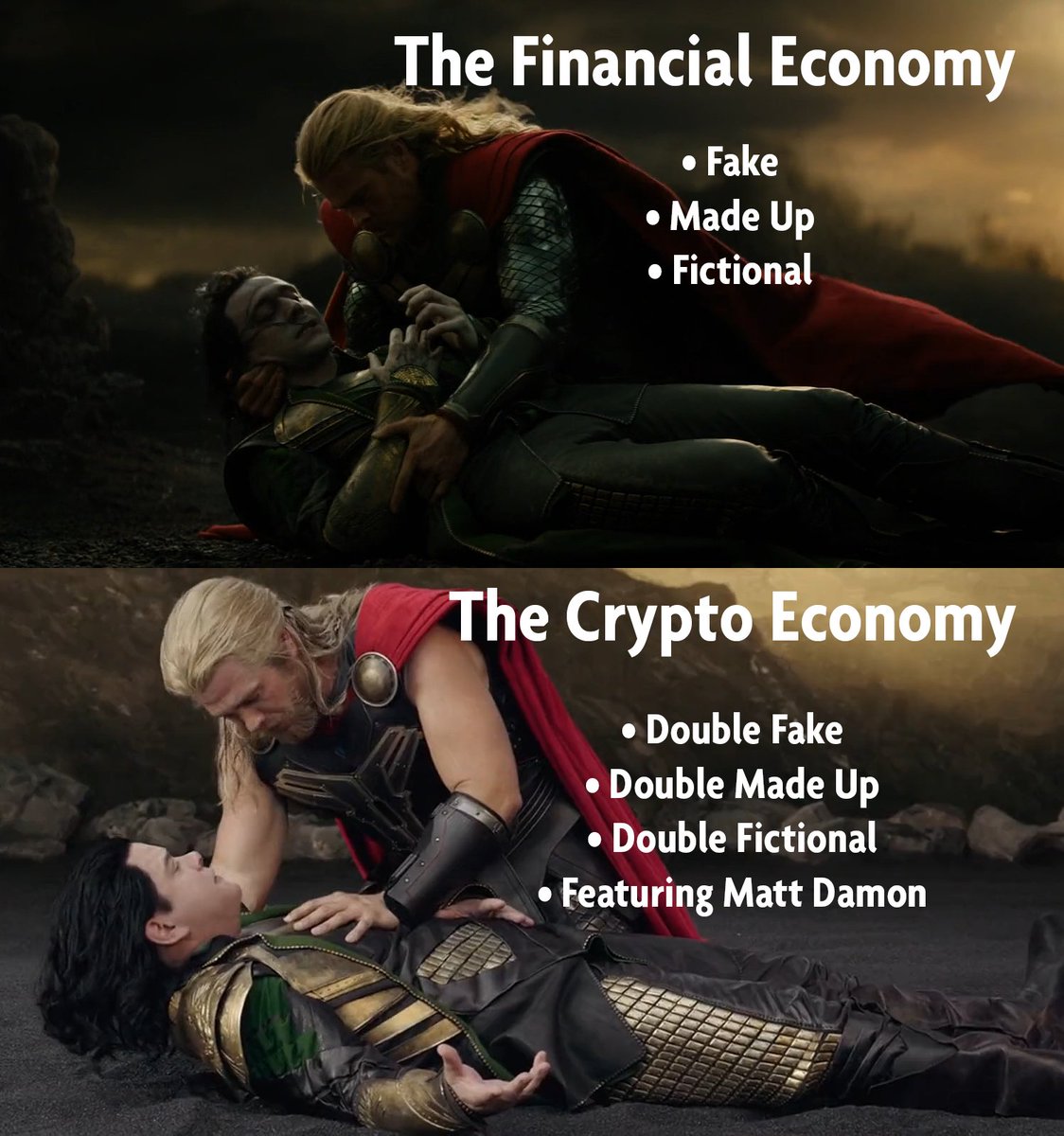
Of these 2.3 thousand replies it would be generous to say that even ten are actual humans. The rest are bots.
I haven't felt the need to reply to much of anything because the crypto ecosystem's reality speaks for itself.
I haven't felt the need to reply to much of anything because the crypto ecosystem's reality speaks for itself.

I have found it fascinating watching a substantial number of web3/crypto pushers come to the dawning realization that they're not misunderstood, they're loathed. Realize that they had no idea the degree of ad spam, bots, and over-hyped shilling that everyone else is dealing with.
There's also been the frankly embarrassing "I deserve to talk to Dan Olson directly! RT/like if you agree!" responses, and the only slightly less embarrassing "I'm going to pretend that this ad pitch for my product is actually a substantive reply to Dan's criticisms."
That's not to say that there haven't been fair criticisms, most of which are criticisms I have of the video myself. There's a ton of stuff I cut, a ton of stuff I had to breeze past, a ton of stuff I wish I could pull a Robert Caro on and spend the next eight years polishing.
The most pointed of these criticisms is the absence of positives. Why not draw attention to the things that *are* to some degree working and not complete trash fires?
In an earlier, much more fractured draft that was a lot of what became Chapter 11, and it ultimately got cut down into just talking briefly about Hic Et Nunc.
Big reason for that is just boring realities of writing: the flow just wasn't working, I couldn't find the structure.
Big reason for that is just boring realities of writing: the flow just wasn't working, I couldn't find the structure.
Then in taking a critical look at this part of the script that already wasn't working I admitted to myself that it was just a faux-centrist diplomatic gesture to make a hypothetical pro-crypto viewer less mad, and in doing so distracted from the forest by staring at trees.
In talking about this now, of course, I have the benefit of an additional almost two months to think about it, to construct the ideas and words, so again if I had infinite time I would have eventually been able to figure out how to walk this tightrope. But I'm human.
I'm sure many of the people who got swept up in Bernie Madoff's Ponzi scheme over the three decades that he ran it used whatever money they got to do legitimate things, maybe even good things. But Madoff was still running a scam.
We, rightly, do not talk about those hypotheticals because Madoff's scam is, at this point, beyond question. It was a scam, full stop. "But some of the people who got money out of that system did good" paints a skewed proportionality.
So "the good parts of crypto" were paired back to two points:
1) they are milked relentlessly for the legitimacy that they lend to the deflationary, wealth-hoarding, destructive system that they hang from (a point I probably would have made even more explicit, if infinite time)
1) they are milked relentlessly for the legitimacy that they lend to the deflationary, wealth-hoarding, destructive system that they hang from (a point I probably would have made even more explicit, if infinite time)
2) they exist in a precarious limbo where the system is poised to devour them at any second, because the needs of users (stability, predictability) are incompatible with the wants of the validators and hodlers (to the moon!)
A response that I'm empathetic to has been pro-crypto people expressing frustration over the fact that many of my granular criticisms are already reasonably trafficked within crypto circles. They know the UX is godawful, the security is terrible, and the scams are pervasive.
"Why are you paying attention to these *now* and not when I was saying it!?"
And the reason is: because your version doesn't link it to the machine itself.
"Scams are pervasive" and "the machine is built to facilitate scams" seem similar, but are very different.
And the reason is: because your version doesn't link it to the machine itself.
"Scams are pervasive" and "the machine is built to facilitate scams" seem similar, but are very different.
Internal criticism accepts the core conceit "crypto is a good idea and useful" which makes it toothless. People will gesture to your internal criticisms for Brownie points, "see, look, we're talking about these issues", but they don't need to take them seriously.
I do wish I'd found the words for all this back in November, December, hell January 17th, because I absolutely agree: I could have, probably *should* have, talked more about the idea of legitimacy, and how well-meaning projects fit into the ecosystem.
• • •
Missing some Tweet in this thread? You can try to
force a refresh










